Saint Catherine’s Monastery of Sinai: A crucible of soft power in the Orthodox East
Saint Catherine’s Monastery of Sinai, perched amid the stark landscape of the Sinai Peninsula, is more than a monument of Christian antiquity. It stands today as a living testament to the enduring spiritual and diplomatic role of Greece within the Orthodox world, a quiet but formidable projection of Greek soft power that resonates across the Eastern Mediterranean and beyond.
A silent beacon of Greek diplomacy
Far removed from the centers of modern diplomacy, the monastery’s Greek-speaking monastic community and steadfast commitment to Byzantine liturgical tradition transform it into a unique spiritual and cultural outpost. It exemplifies the principle that soft power does not always emerge through overt political maneuvering but often through the quiet constancy of spiritual guardianship and cultural authenticity.
This presence enables Greece to project a moral authority and cultural leadership that transcend national boundaries. As a spiritual bridge linking the ancient Patriarchates of Alexandria, Jerusalem, and Constantinople, the monastery fosters relationships of trust and mutual respect, relationships built not on political expediency but on the bonds of faith and tradition. This role is particularly significant in an era marked by shifting alliances and the increasing entanglement of religious and geopolitical interests.
Through the Monastery, Greece affirms its position as a custodian of Orthodox heritage and as a stabilizing force in the region. Its spiritual authority and cultural resonance serve as subtle yet powerful tools of statecraft, enabling Greece to foster dialogue, unity, and a sense of continuity within the Orthodox landscape.
The challenge of the Russian Exarchate
The relevance of the monastery’s soft power role has grown even more pronounced in recent years, as new challenges emerge within the Orthodox world. Foremost among these is the creation of the Russian Patriarchal Exarchate of Africa, an assertive move by the Russian Orthodox Church to expand its jurisdiction into territories historically aligned with the Greek Orthodox Patriarchate of Alexandria.
Although this development does not directly involve Saint Catherine’s Monastery, it reshapes the broader Orthodox environment, highlighting the use of ecclesiastical structures as instruments of geopolitical influence. The Russian initiative underscores how religious identity and geopolitical strategy have become deeply intertwined—posing challenges for Greece as it seeks to maintain a stabilizing and mediating role within Orthodoxy.
For Greece, this underscores the urgency of preserving the monastery’s autonomy and Greek character. It is a reminder that spiritual heritage can be both a shield and a platform for diplomatic engagement. a means of counterbalancing external interventions that risk deepening divisions within Orthodoxy.
A strategic spiritual outpost for a fractured world
Saint Catherine’s Monastery thus emerges as a linchpin in Greece’s ecclesiastical diplomacy, a discreet yet resilient bastion of Hellenic presence and Orthodox unity. Its continued independence is not merely a matter of cultural preservation; it is a strategic necessity. In a region where spiritual and geopolitical rivalries increasingly overlap, the monastery’s enduring witness to faith and Greek identity becomes a vital asset for Athens.
The recent diplomatic initiatives, including the visit of Foreign Minister George Gerapetritis to Egypt, underscore this recognition. By reaffirming its commitment to the monastery’s unique status, Greece sends a broader message that it remains a quiet but influential actor, leveraging spiritual heritage to foster stability and to protect the fragile balance of the Orthodox world.
Saint Catherine’s Monastery is far more than a relic of the past. It is a living expression of Greece’s diplomatic and spiritual mission in the Orthodox East, a mission that transcends temporal concerns and speaks to the heart of Hellenic identity. Amid emerging challenges such as the Russian Exarchate and broader regional volatility, the monastery’s quiet testimony to spiritual continuity and Greek cultural presence affirms Greece’s enduring mission: to serve as a custodian of Orthodoxy and as a bridge of stability in a fractured world.
In the lexicon of modern diplomacy, Saint Catherine’s Monastery stands as both a symbol and an instrument—projecting an image of a nation that values spiritual heritage, cultural authenticity, and the deep bonds of Orthodoxy that connect peoples across borders.
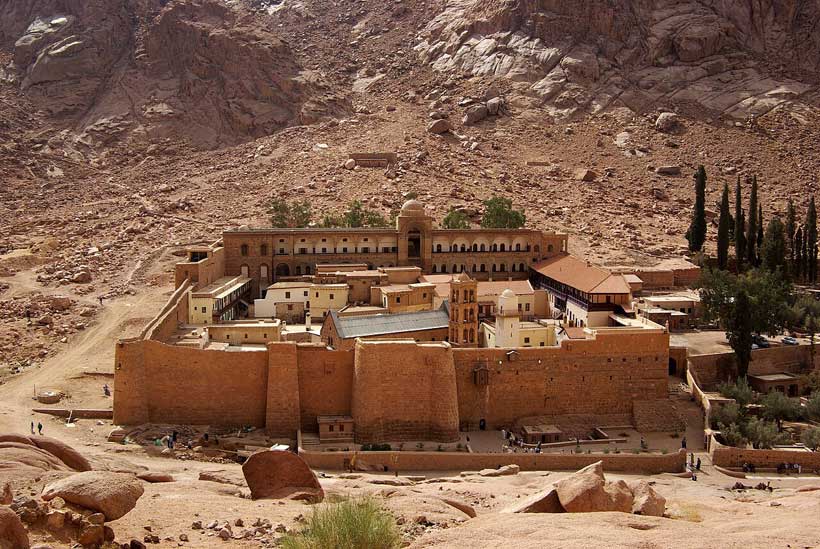
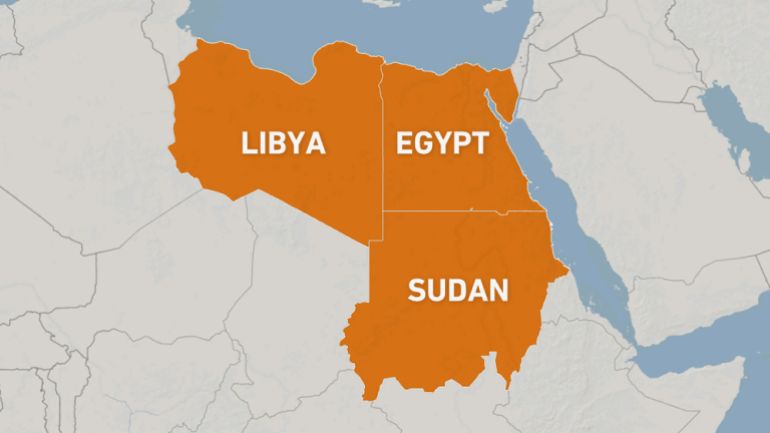

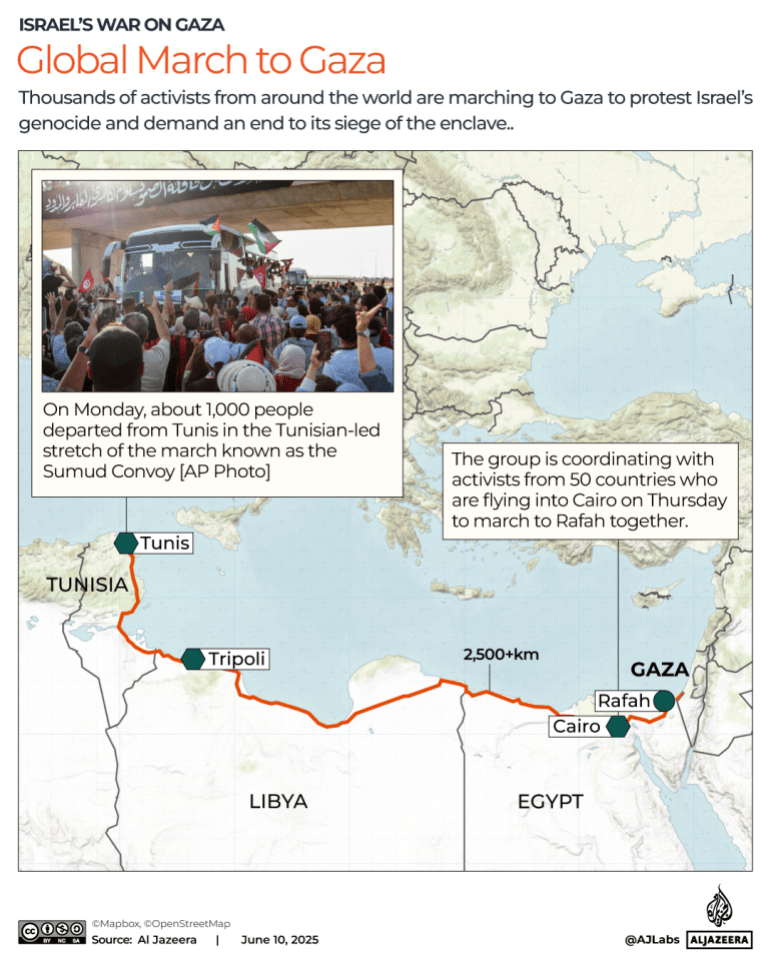

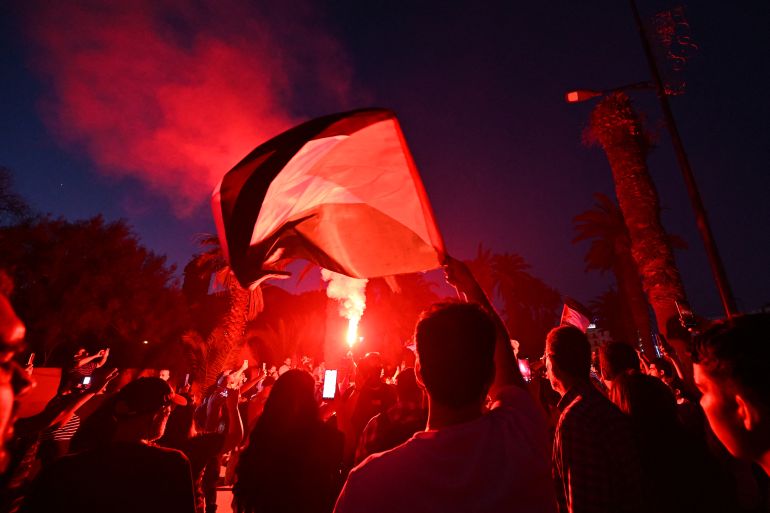

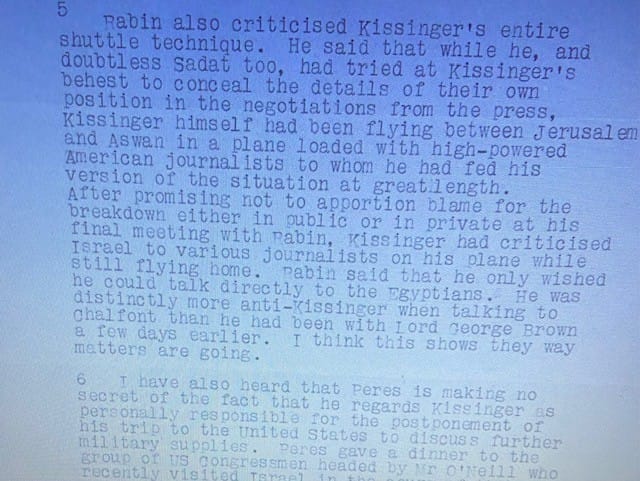

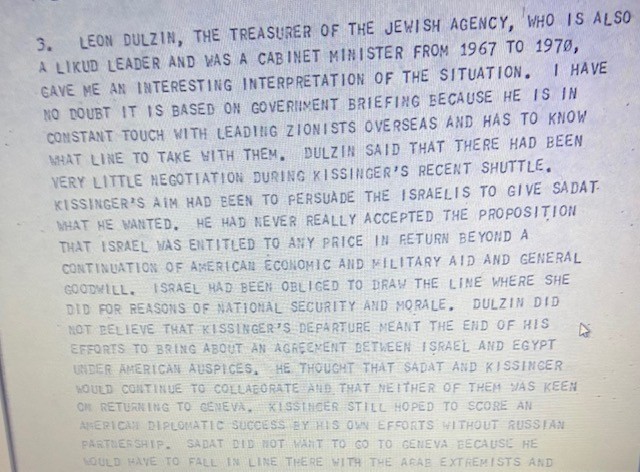
![A satirical drawing showing Israel pandering to Henry Kissinger of the United States while Egypt's President Sadat gets away with the oil rich Sinai desert. [David Rubinger/CORBIS/Corbis via Getty Images]](https://i0.wp.com/www.middleeastmonitor.com/wp-content/uploads/2025/05/GettyImages-530701224.jpg?fit=1200%2C797&ssl=1)